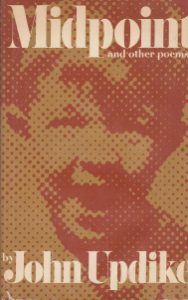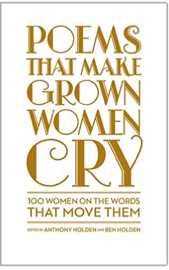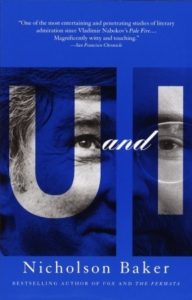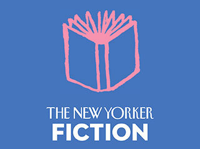In an article published on the Front Porch Republic, JUS member Scott Dill asks the question, “Would Rabbit Angstrom Vote for Trump?”
The answer is complicated.
 On the one hand, “Rabbit was ‘ever the loyal citizen. God he can doubt, but not America,'” and his brand of nationalistic patriotism is the same sort that Trump is peddling. As Dill notes, “Rabbit’s patriotism was accompanied by nostalgia, racism, sexism, and a general anti-cosmopolitanism to the extent that, were Updike around to give us another installment, it would probably involve at least one Trump rally.
On the one hand, “Rabbit was ‘ever the loyal citizen. God he can doubt, but not America,'” and his brand of nationalistic patriotism is the same sort that Trump is peddling. As Dill notes, “Rabbit’s patriotism was accompanied by nostalgia, racism, sexism, and a general anti-cosmopolitanism to the extent that, were Updike around to give us another installment, it would probably involve at least one Trump rally.
“Wouldn’t Rabbit, after years of bemoaning the changing racial demographic and economic fortunes of his hometown (a thinly veiled Reading, PA), look to Trump to give meaning to his years of growing resentment? His once magical childhood city would still be crumbling around him, drugs and divorce had worn down his family, the country’s loss of loyalty would likely still irk. Oh to be great again!”
But Rabbit was also a lover of beauty and he appreciated the little things. “Sidewalks and pies and sunshine—they were worth savoring in themselves. For Rabbit, life in its fullest flourishing was what happened in the quotidian moments of middle-class striving.
“Which is part of why Rabbit tended to agree with his father’s politics, and voted Democratic. Earl Angstrom once praised Medicare and the moon landing in the same peon to the Democrats’ beneficent protection: ‘They called LBJ every name in the book but believe me he did a lot of good for the little man. Wherever he went wrong, it was his big heart betrayed him. These pretty boys in the sky right now, Nixon’ll hog the credit but it was the Democrats put ’em there, it’s been the same story ever since I can remember, ever since Wilson—the Republicans don’t do a thing for the little man.'”
Dill avoids answering his own question, but fans of the Rabbit novels will remember that Rabbit may have been a simple blue-collar worker but he also had a powerful curiosity and a sense of history being made as events unfolded. He would have attended a Trump rally not necessarily out of conviction but because it was part of American history happening right before his eyes. Rabbit had a powerful curiosity and an open mind—enough to try to understand the perspective of a black militant in Rabbit Redux—and he would have seriously considered the arguments for electing both Clinton and Trump.
In the end, would he have voted for Trump? Probably not. As Dill writes, “Rabbit once memorably exulted that America was ‘the happiest fucking country the world has ever seen!’ His country is a cherished occasion for loving the unrepeatable particularities of his own life.” For all his flaws, Rabbit was an optimistic, positive individual, a glass half-full kind of guy, especially when it came to America. As Updike told an interviewer, Rabbit is “a hopeful man, who, at his best, was in love with life.” And Updike, who voted for Democrats his entire life but famously supported the Vietnam War, couldn’t abide the “kind of American self-hatred” that emerged from the anti-war people. In the end, though Dill doesn’t say so, odds are that Updike and Rabbit would have been put off by the inherent negativity of Trump’s message.
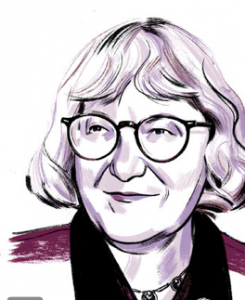 In a summer New York Times Book Review interview, “Cynthia Ozick: By the Book,” Ozick mentions Updike in her very first response. Asked what books are currently on her night stand, she replies,
In a summer New York Times Book Review interview, “Cynthia Ozick: By the Book,” Ozick mentions Updike in her very first response. Asked what books are currently on her night stand, she replies,
